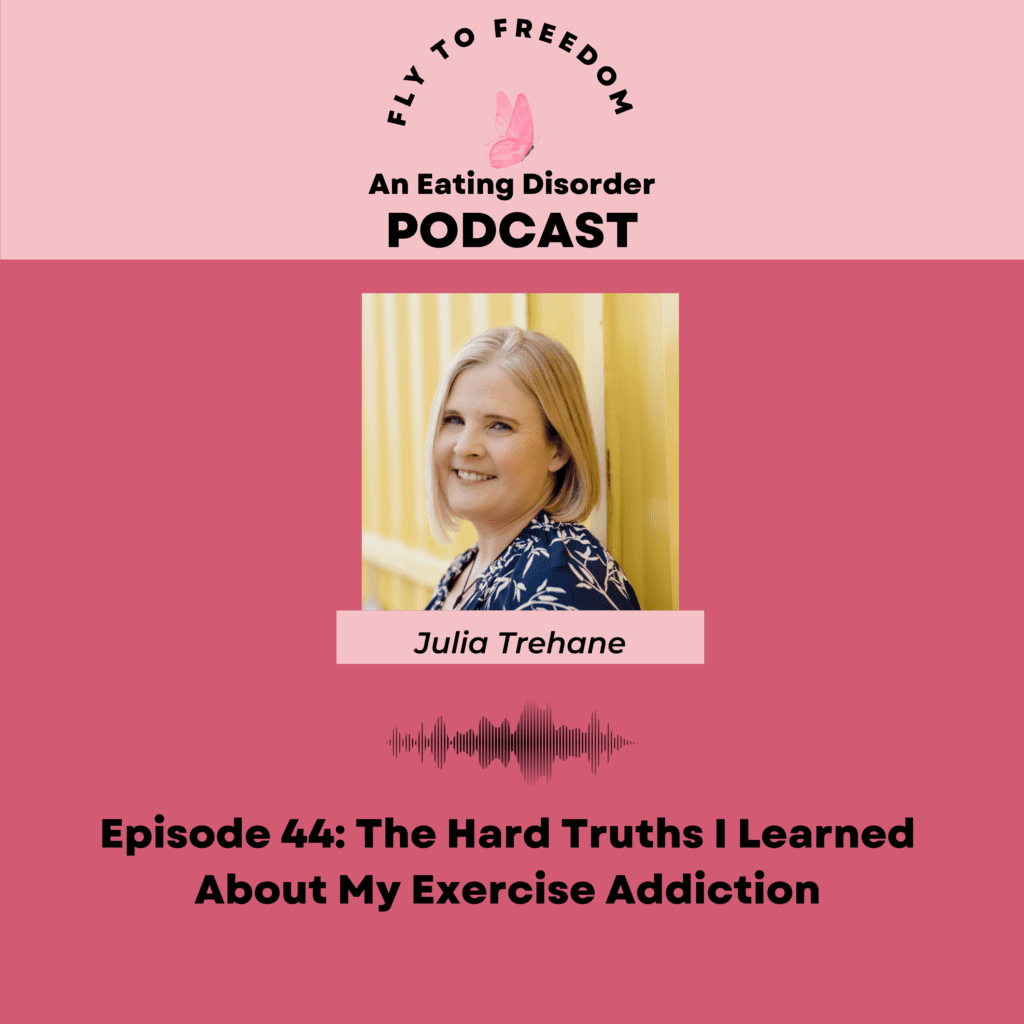Understanding the Evolutionary Explanation
I once exercised for up to 8 hours a day, every day. I felt completely out of control and compelled to keep pushing my body to extremes. If I couldn’t make it to the gym or fit in my usual routine, I would become unbearably anxious and restless. I realize now that I was suffering from exercise addiction and compulsive movement habits related to my eating disorder.
In my recent podcast episode, I opened up about my personal struggles and what helped me overcome this rocky chapter of my recovery journey.
Tuning Into My Body with Compassion
One of the most important lessons was learning to tune into my body more deeply. I had been completely disconnected from my own signals and wisdom for years. I exercised through pain, fatigue, illness, and injury without a second thought. By reconnecting and listening, though, I realized I didn’t actually enjoy most of what I was putting myself through! It felt punishing rather than rejuvenating. I had to nurture real self-care like relaxing baths and good nights of sleep to replace the frantic movement patterns.
Scientists are finding out how smart our bodies really are. They’ve discovered that being in tune with our body not only helps us make friends with it but also calms our minds. It’s like having a heart-to-heart with yourself, understanding what really makes you tick, and using that understanding to take care of your emotions and your needs.
Honour Extreme Hunger First
This was huge on my path to letting go of compulsive exercise. When we get enough nutrition to fuel our bodies properly, the urges to keep burning more energy ease quite a bit. But because I feared weight gain, I kept the over-exercise routines going even when I increased my food intake. Once I committed fully to no more restrictions, the compulsion lifted almost completely. It became so clear just how linked my issues with food and exercise were, and I had to address them together with equal compassion.
Experts in food and mood tell us how closely our diet is linked to how we feel and act. When we don’t get the right nutrients, our bodies can send out SOS signals in the form of stress or the urge to keep moving. Feeding our bodies properly is like giving it a big, comforting hug, telling it everything’s okay, and soothing those urges to overdo the exercise.
I still have to keep these lessons in mind even in my later recovery. But now I have tools to recognize my old patterns popping up early and course correct with self-compassion rather than criticism. Things like tuning into my body, asking what I really need right now, and nurturing myself with loving actions rather than punishing exercise rules. It’s an ongoing practice, but so worth the freedom. My journey, sprinkled with personal stories and a dash of science, shows how caring for our mind, body, and diet can lead us down a path of true, heartfelt healing.
Key Takeaways
If this article resonated with you, be sure to listen to the podcast and give it a 5 star rating and comment.
If you’d like to start your own journey and would like my support, you can book a call with me.
Thanks for reading!


